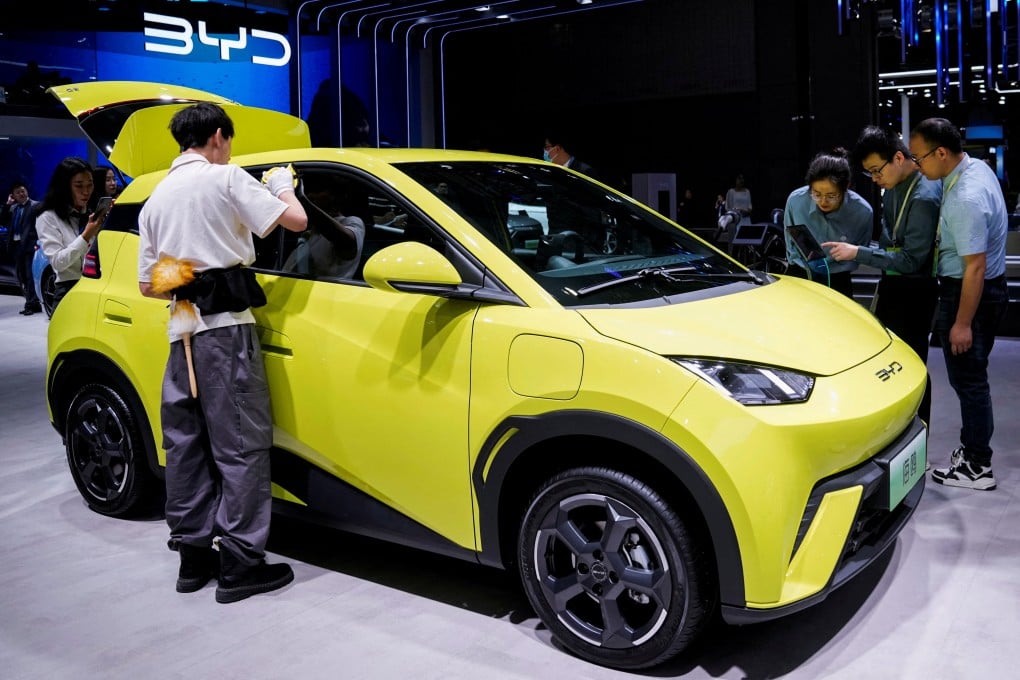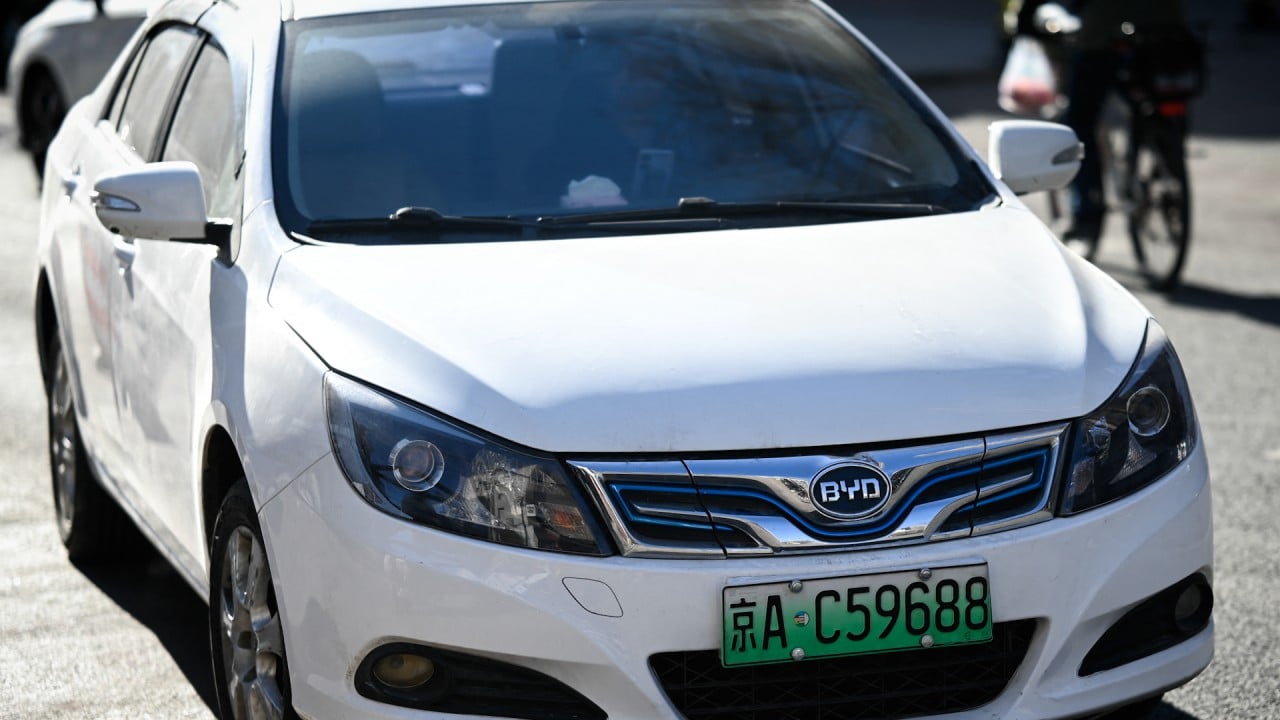China EV war: BYD takes on laggards Toyota, VW with steep price cuts
- The Shenzhen-based carmaker has cut prices on more than 100 existing models compared with December, and relaunched a further 70 model trims with lower prices
- The all-out price cuts are aimed at persuading drivers to ditch their petrol cars and go electric, while also seeking to win customers in smaller cities

Not content with unseating Tesla as the world’s top-selling electric-vehicle maker, BYD has now set its sights on stealing customers from the likes of Toyota Motor and Volkswagen in one of the most aggressive rounds of discounting seen in China’s bruising price war.
The Shenzhen-based carmaker is currently discounting almost every electric and hybrid car model it sells, as part of a marketing campaign declaring “electricity is cheaper than oil”.
Data from Chinese car portal 16888.com analysed by Bloomberg News shows BYD has cut prices on more than 100 existing model versions compared with December, and relaunched a further 70 model trims with lower prices. About the only unaffected models come from its recently launched Yangwang brand, including its newly unveiled supercar, which goes for 1.68 million yuan (US$233,000).
Notably, BYD’s most-affordable EV has become even cheaper still. The Seagull hatchback has been discounted 5 per cent to 69,800 yuan (or less than US$10,000, which undercuts the average price of an American EV by more than US$50,000). BYD’s top-selling Qin Plus sedan has been discounted even more steeply, by 20 per cent to a starting price of 79,800 yuan.
While Chinese EV manufacturers have generally pitched their models at first-time car buyers in wealthy cities like Shanghai and Shenzhen, BYD’s all-out price cuts are aimed at persuading drivers to ditch their petrol cars and go electric, while also seeking to win customers in smaller cities and rural areas who previously could not afford an EV.
The strategy is a threat to Toyota, Volkswagen and Nissan Motor, which have all been slow to transition to EVs and seen their China sales suffer as a result.

